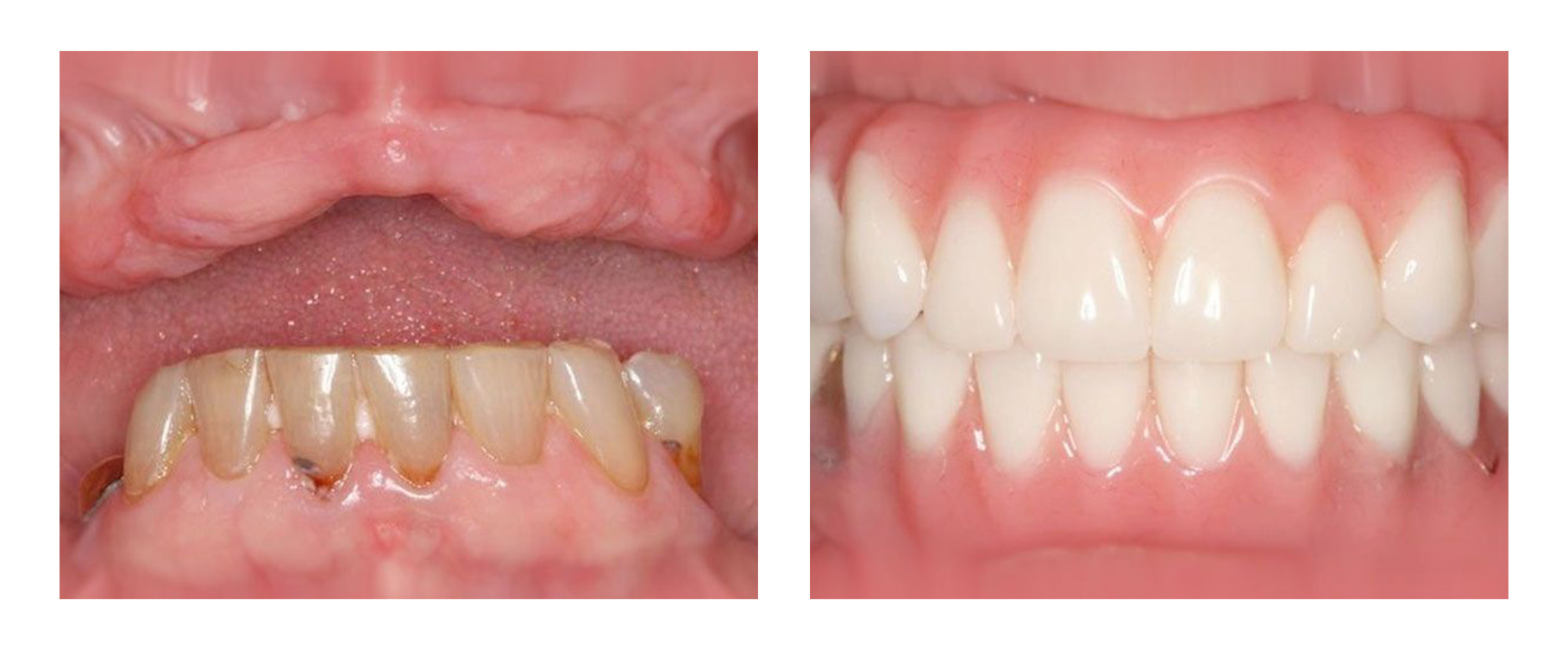Easier to eat, speak, and smile
Dentures
Dentures can replace several missing teeth or an entire dental arch, restoring the function and appearance of your smile. Often times dentures are held in place with the support of dental implants.
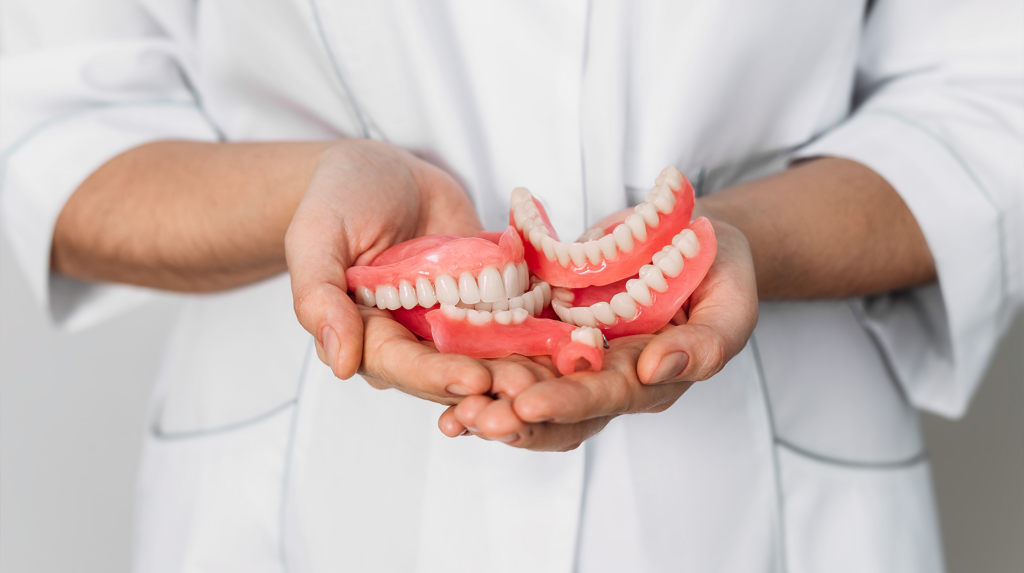
What to expect during your visit.
At Midwest Oral, you can expect to receive the highest quality of care throughout each phase of your treatment process.
We offer multiple forms of sedation and anesthesia to ensure you remain comfortable. The specifics of your extractions and implant placement will depend on current quality and density of the bone surrounding the area. Your surgeon will fully discuss what to expect during surgery with you before beginning.
Tools the dentist uses.
New Technology Makes Getting Dentures Even Easier
Many dentists now use advanced tools to take digital impressions of your smile. These systems eliminate the need for messy, uncomfortable impressions taken using putty and allow your dentist to customize your denture with greater precision. Some offices even have in-house milling systems which can fabricate your restoration on-site, making treatment more convenient.
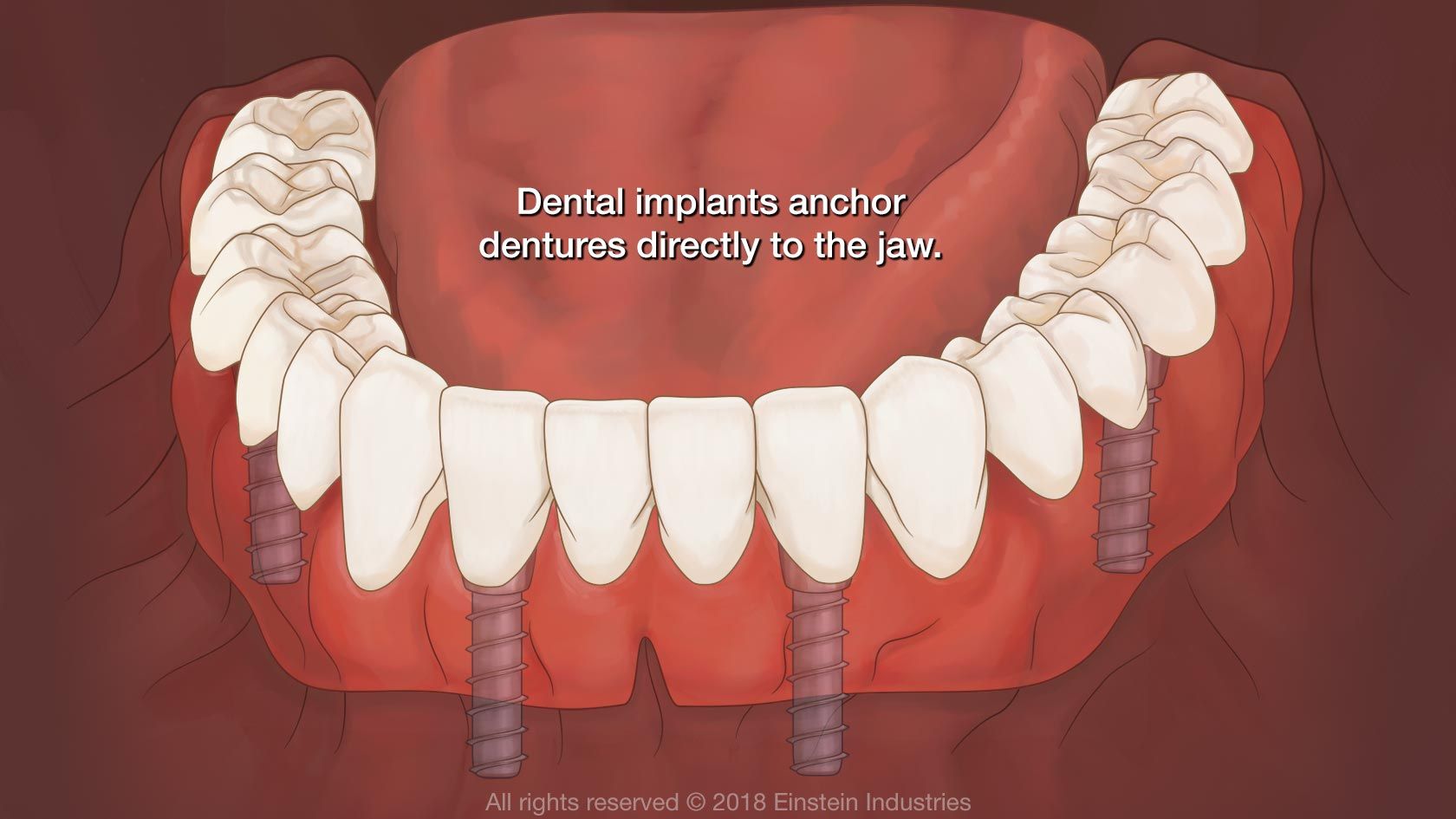
Dentures Make It Easier
- Take Years off Your Appearance
Designed to look like natural teeth, dentures can be customized to complement the shape of your face and improve the appearance of sunken cheeks and puckered lips.
- Enhance Your Quality of Life
Dentures can renew your ability to eat comfortably, enunciate clearly, and chew properly. With a fully functional smile, you can enjoy life more completely.
- Benefit from the Stability of Implants
You can elect to secure your dentures with dental implants. This solution keeps your dentures firmly in place and prevents the jawbone recession that occurs after tooth loss.
Your dentist can tailor your restoration to your needs.
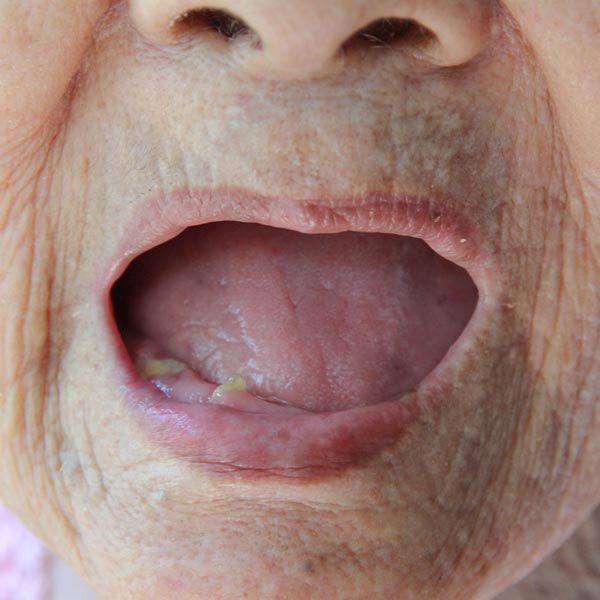
Complete Tooth Loss
If you have lost all of your teeth in one or both jaws, a full denture can restore an entire arch of teeth.
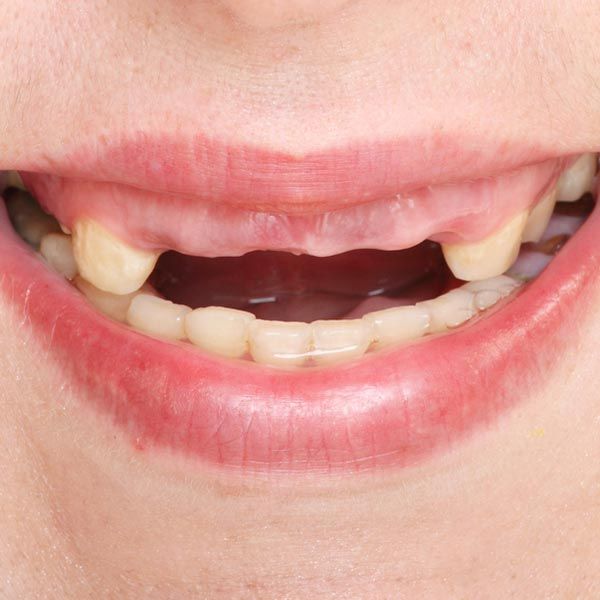
Localized Tooth Loss
If you have lost more than three teeth in a row, your dentist may recommend a partial denture rather than a bridge.
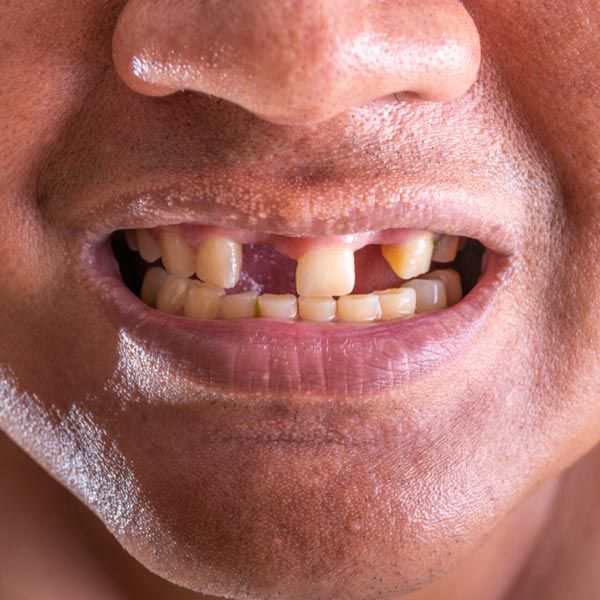
Multiple Areas of Tooth Loss
If you have lost teeth in different areas of your smile, a partial denture can fill these gaps using a single restoration.
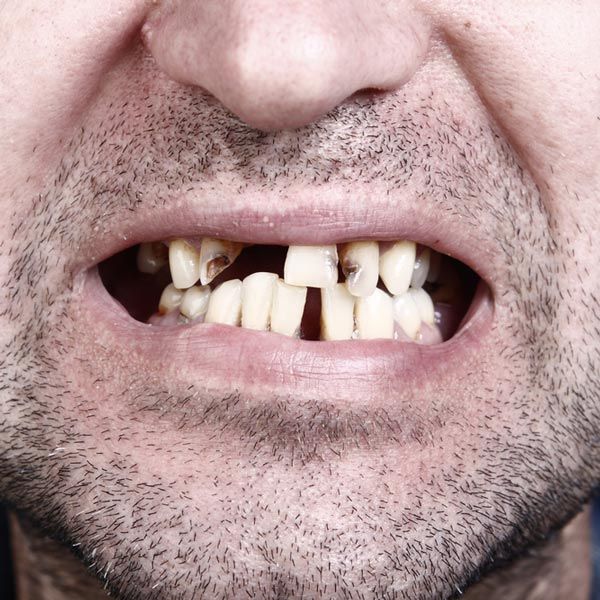
Infected or Rotting Teeth
You may be a candidate for a denture if you have teeth that are too decayed, broken, or infected to repair. Replacing these teeth with dentures can prevent infection from spreading to other areas of your body.
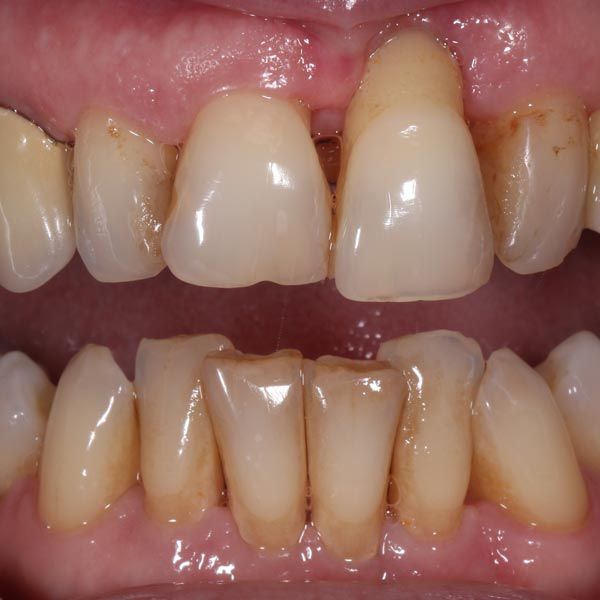
Loose or Shifting Teeth
Often a symptom of gum disease, your dentist may recommend addressing loose or shifting teeth by removing and replacing them with a custom denture.
Nearly 1 in 5 adults over 65 have lost all their teeth

A Range Of Conditions Can Affect Your Candidacy
- Bone Density
For an implant-supported restoration, you must have enough jawbone tissue to support dental implants. A bone graft can restore lost tissue if you have experienced jawbone recession. Even for a traditional restoration, your doctor may recommend pre-prosthetic surgery to prevent issues and make your restoration fit more comfortably.
- Gum Disease
While early stages of gum disease can be easily treated, the condition can reach a point at which the solution may require tooth extraction. Once the teeth are removed, your gums can heal and a denture can replace the extracted teeth. You must be free of gum disease and tooth decay prior to receiving dentures.
- Feelings of Self-Consciousness
If an incomplete smile is making you feel self-conscious, you should speak to your dentist about dentures. A restoration can improve both the appearance and function of your smile and allow you to feel more confident.
Dentures Can Cost as Little as $300 Or More than $13,000 for a Single Arch
- From Acrylic to Zirconia
Acrylic is the cheapest material available ($300 to $500 per arch), but it is also the least durable. Porcelain is stronger and more realistic-looking, but can cost from $750 to $2,000 or more per arch. Zirconia is the very strongest material, costing more than $13,000 per arch.
- Dental Implants
For the right candidates, implants make dentures far more stable and beneficial, but they also inflate the price. Placing a single implant costs $1,600 to $2,200, and dentures can require four to eight implants per arch.
- Preparation
You may require preparatory treatments before receiving dentures, each of which will add to the total cost. A bone graft can cost $300 to $800 per area. Gum disease treatment can cost $500 to $10,000. Extractions can cost $75 to $4,000, depending on the complexity of the case.
The Benefits of Premium Dentures
When it comes to dentures, the more you are willing to spend, the more benefits you are likely to experience.
While you may not need the very strongest denture on the market, paying for greater durability or a more natural-looking result may be worth the added investment.
Acrylic
-
Wears quickly
-
Acceptable aesthetics
Porcelain
-
More durable,
can break if dropped -
Can be made to look highly realistic
Zirconia
-
Can withstand more than 7 times the average person's bite force
-
Can be made to look highly realistic
The Process
The process for receiving a denture varies depending on whether your restoration will be supported by dental implants. While implants can add several months to your overall treatment timeline, they provide significant benefits that many patients feel are worth the extra time.
- Planning
Your dentist and oral surgeon will assess the health of your teeth and gums and design a treatment plan.
- Preparation
You will undergo any preparatory procedures, such as tooth extraction.
- Implant Placement
If you are receiving implants, you will undergo placement surgery and then wait three to six months for the implants to integrate with the jawbone.
- Impressions
Your dentist will take impressions to design your dentures.
- Fabrication
The lab will fabricate your dentures.
- A Restored Smile
Your dentist will provide you with the finished dentures and make any necessary final adjustments.
What happens next?
Your new restoration may feel odd for a few weeks while your cheeks and tongue adapt. You may also experience increased saliva flow, which should diminish as you adjust. With a traditional denture, you may notice some minor irritation or soreness.
You should eat soft foods cut into small pieces so you can get used to the new dentures. Be cautious with hard or hot foods, which could damage your dentures. You may need to practice common functions, such as speaking, with your dentures for a few weeks until you become comfortable with your appliance.
